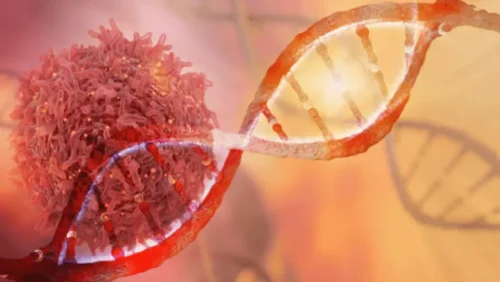
Problems caused by alcoholism don’t resolve themselves, and solutions to family problems usually require buy-in from all family members. Most of the time, family counseling is required to help families recognize the causes of problems and develop healthy solutions to resolve them. Alcoholism can inflame relationship stressors, such as financial difficulties and child https://ecosoberhouse.com/ care issues. An arrest for driving under the influence can cost thousands of dollars in fines, court fees and car insurance increases. A car accident can make a person incur tens of thousands of dollars in health care or vehicle replacement costs. Family members of alcoholics can experience anxiety, depression and shame related to their loved one’s addiction.
- The authors found that the children of alcoholics had significantly lower independence and intellectual/cultural orientation scores compared to controls, but this was not the case for other types of personal development scores (e.g. active/recreational scores).
- Dr. Flanagan is Principal Investigator of an NIAAA-sponsored grant using the Alcohol Behavioral Couple Therapy treatment manual.
- To make things easier, especially at first, try to choose places that don’t serve alcohol.
- It also requires kindness and compassion and a willingness to reach out for help if you uncover any underlying issues.
- The good news is that cutting back on your consumption offers far more benefits than the challenges it may present .
- This may mean setting ground rules and joining a support group such as Al-Anon, designed specifically to meet the needs of families of people with alcohol use issues.
Limitations of this Review
Overall, the five studies included 14,108 children with an age range of 3–11 years old, and showed an association between household member alcohol misuse and greater difficulties. Three studies [55, 58, 62] examined care-giver/parental alcohol misuse, and two examined father’s use of alcohol [45, 53]. Two cross-sectional studies in South Africa [55, 58] examining caregiver/parental alcohol exposure and showed an association with high total SDQ scores.
Parental Substance Abuse and Educational Functioning
- Not all rehabilitation programs provide family therapy, but it can be a very important aspect of treatment, especially for people who have spouses and children, and for adolescents struggling with AUD.
- However, where research findings apply to a more limited group (e.g., spouse versus partner) we use the correct term to delimit the population studied.
- One new direction for dyadic AUD treatment is the integration of existing and emerging modalities with electronic and technologically based adaptations (e.g., smartphone/online access, e-health [electronic health], m-health [mobile health]).
- As a result of trust issues or the lack of self-esteem, adult children of parents with AUD often struggle with romantic relationships or avoid getting close to others.
- A parent with a SUD, who is mood altered, preoccupied with getting high or spending significant amounts of time recovering from the effects of substances, may miss the opportunities to foster healthy attachment.
- In conclusion, the implementation of diverse intervention and treatment strategies is vital in mitigating the impact of alcoholism on family dynamics.
In India, Bele et al. (2012) found having an alcoholic father was a significant predictor of scores showing an emotional or behavioural disorder [45]. In a Belarusian cross-section study of 11,305 children, authors found increased total difficulty SDQ scores in children whose fathers had heavy or moderate drinking habits (difference in score 0.9, 95% Confidence Interval (CI) 0.5–1.4 and 0.5, 95% CI 0.1–0.8 respectively) [53]. However, when stratifying scores, how does alcohol affect relationships they found an association with increased scores for externalising behaviours (hyperactivity and conduct problems) but not for internalising behaviours (emotion and peer problems) after adjusting for confounders [53]. In contrast, in Thailand, Pajarn et al. (2012) did not demonstrate an association between parental alcohol misuse and SDQ scores [62]. Excessive alcohol consumption and alcohol problems are robust correlates of men’s violence toward women.
- The negative impacts of parental SUDs on the family include disruption of attachment, rituals, roles, routines, communication, social life, and finances.
- Maltreatment of younger children may have a different etiology and consequence than maltreatment of older children.
- Eight studies [52,53,54, 56, 59, 60, 71, 72] investigated cognitive delay/disorder related to intelligence and academic performance (Table 4).
- A great deal has been learned to date regarding efficacious family and couple treatment models.
- Social workers can also help by participating in Individualized Education Plan (IEP) meetings, making school referrals for special education, and requesting psychoeducational and neuropsychological testing.
Common patterns in families with SUDs
Although marital satisfaction, IPV, and parenting behaviors are linked, studies focusing on alcohol have often treated these separately. Consequently, although a substantial literature indicates links between marital conflict, parenting, and child outcome, there are few such studies of these links in the alcohol field. At several points, our review touched on potential bidirectional effects with respect to alcohol and marital/family processes. There is considerable evidence that heavy drinking leads to marital and family conflict. Moreover, negative emotions and interpersonal interactions often lead to relapses among alcoholics, and it seems likely that stress generated by marital/family conflict could motivate continued drinking.
- As a result, the individual’s personal stability (if single) or family life can be radically shaken.
- Misunderstandings, arguments, and a lack of transparency can create a toxic communication environment, hindering the expression of feelings and needs.
- A review of the literature found a significant relationship between alcohol and domestic violence — with one 2020 study in Australia citing alcohol as a factor in roughly 24% to 54% of family and domestic violence police reports.
- Alcohol use disorder (AUD) is a chronic health condition that can have a serious impact on a person’s life.
- Most of the research has focused on young adult participants, and few researchers have examined the marriage effect later in life.

It is estimated that more than eight million children younger than age 18 live with at least one adult who has a SUD that is a rate of more than one in 10 children. The majority of these children are younger than age 5 (U.S. Department of Health and Human Services [USDHHS], 2010). The studies of families with SUDs reveal patterns that significantly influence child development and the likelihood that a child will struggle with emotional, behavioral, or substance use problems (Substance Abuse and Mental Health Services Administration [SAMHSA], 2003).
Effects of Alcoholism on Families and Close Friends
Keep in mind, the family member with alcohol misuse issues could be a child or adolescent—as opposed to an adult. But regardless of which family member has alcohol-related issues, children can experience a host of effects related to alcohol misuse within the family. Various therapies and treatments, however, can help both children and family members deal with and recovery from these impacts. The presence of Attention Deficit Hyperactive disorder (ADHD), Oppositional Defiant Disorder (ODD), Conduct Disorder (CD), Obsessive Compulsive Disorder (OCD) were addressed by studies in Ukraine [46], Turkey [48] and India [59]. Drabick et al. (2004) found that fathers of children with ADHD more commonly abuse alcohol than fathers of children with ODD ± ADHD in teacher defined subgroups [46]. Conversely, Kiliç and Şener (2005) found that paternal alcohol abuse was more common in children with ADHD and ODD and/or CD compared to ADHD alone [48].
Summary of Family–Involved Treatments
The Impact of Substance Abuse on Parents of Adult Children

Drinking and Alcoholism as Influences on Marital Processes

